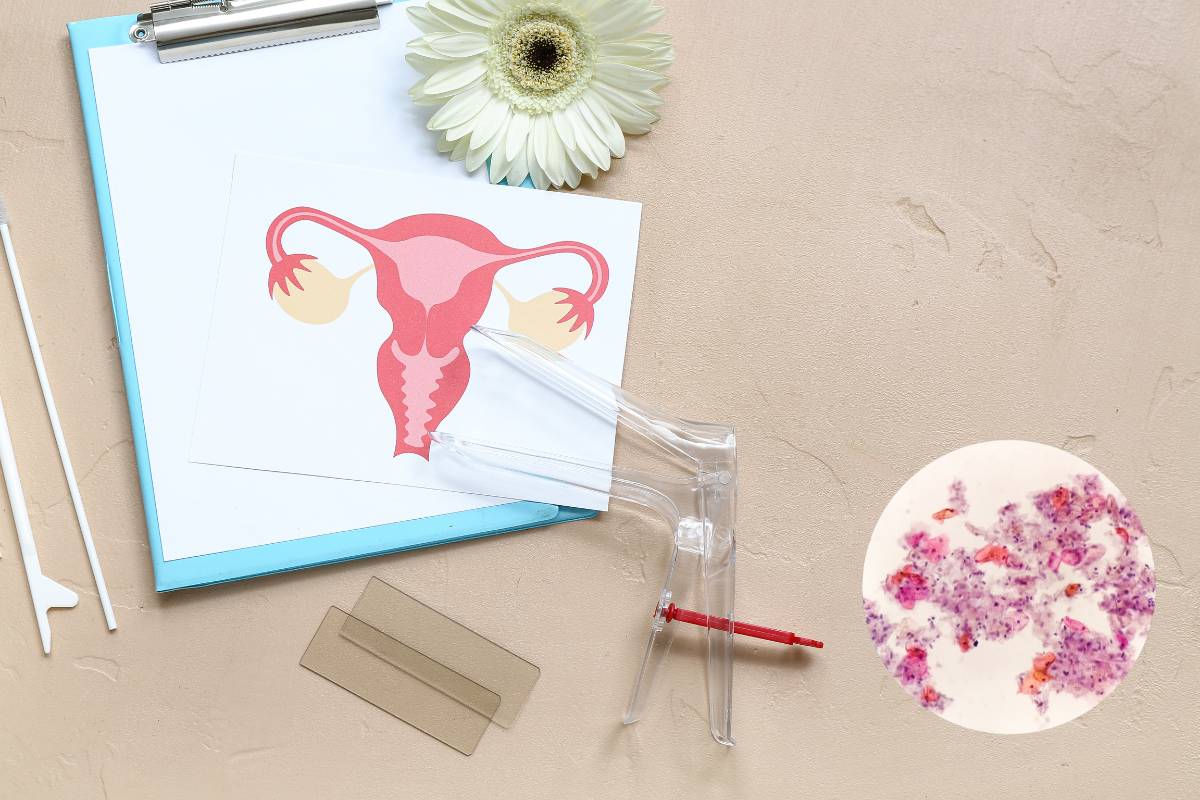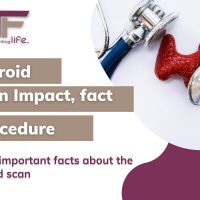Can You Get A Pap Smear on Your Period? Did your gynecologist’s doctor recommend a pap smear test shortly while you have irregular periods? One question is certain to pop up in your mind, and that is – Can you get a pap smear on your period? Undoubtedly, you barely know when you are going to bleed, and it may happen on the day of your pelvic examination/ pap smear.
Is anyone else, or just me?
Well, if you do so, this blog can be of some insightful help!
CContents
What Is a Pap Smear and When Do You Need This Test: An Overview!
Also called Pap Test, Pap Smear is nothing; but a type of pelvic examination that screens the cells of your cervix, that is, the lower area of your uterus, the one connecting it to your vagina!
It detects abnormal changes in your cellular functioning and henceforth traces cervix cancer and/or precancerous circumstances.
During the test, the healthcare professional gently collects cells from your cervix’s surface! Then, they run a microscopic test over the sample in the medical laboratory to look for the presence of abnormal cells, if any!
This test is, perhaps, an essential area of women’s preventive healthcare, and it acts as a significant approach to tracing early-stage cancers, nipping them right in their buds.
Such a facet becomes more relevant because cervix cancers are not often symptomatic at their early stage. In fact, a pap smear can also help locate infections and inflammation in your cervix.
Medical experts say that; you must get this test done within three years of being sexually active. If you are already above twenty-one years and yet not sexually active, this test stands salient for you too!
For routine check-ups, the frequency at which your doctor prescribes pap smear may differ following myriads of factors. Yes. Your doctor may look at your age, preexisting diseases, previous test reports, and present physical condition to determine whether to pursue it in five years or three.
- Do you have severe abdominal cramps? Or maybe a subtle transformation in your vaginal discharge?
- Did you find blood coming out of your vagina after physical intercourse, amidst your two menstrual cycles, or maybe; after menopause?
- Are you the one suffering from pain while having sex or while urinating? Are your periods longer and heavier than before?
All these are red alerts or symptoms of cervix issues, including cancerous growth, and if your doctors find such signs in your case, they may opt for a pap smear for the diagnosis at the primary phase!
Can You Get A Pap Smear on Your Period: If No, Why; If Yes, How?
While some healthcare providers prefer avoiding the days of your periods to perform a pap smear test, some say it’s okay to pursue this test when you are bleeding!
Sometimes, it may also be the case where you lay scheduled for your pap smear much before your dates, but your period gets pre-poned by default. For such cases, there are certainly some steps to follow and prepare.
Well, there exist several reasons why you shouldn’t get a pap smear on your period. Many medical experts argue that the menstrual flow may affect test accuracy by interfering in between and limiting the visibility of the cells in your cervix. That, in turn, makes laboratory analysis and result interpretation far more challenging.
However, many medical researchers state that such an issue arises only when you have a heavy blood flow.
Many medical experts & healthcare professionals argue that you don’t need to cancel a pap smear appointment because of getting your period. They say that normal vaginal bleeding is unlikely to get in the way! The obstetrician or gynecologist can perform the pap smear on your periods as long as; you are comfortable with it!
You have to discuss it with your doctor and come to a decision. You can even reschedule the test if you feel so!
Now, are you wondering; how exactly can you get a pap smear on your period?
Here it goes!
- Firstly, you don’t have to be embarrassed about your periods. It’s normal! Tell your doctor about it before you check in for your pap smear test.
- Once you reach the healthcare center, go to the restroom, and remove your tampon, menstrual cup, or pad.
- While you go inside the exam room, you can ask for pads to keep underneath your vagina if and when needed during the scan.
- The doctor may use a swab (i.e., a small absorbent piece of cotton or synthetic material, sterilized and attached to a thin handle) to wipe out the additional menstrual blood from your vaginal canal and secure better visibility of the cervical surface!
- After the test lay done, you will be free to use the restroom again, wash your vagina, and put on a tampon or pad before leaving the center.
How Many Days After Your Period Is It Better To Get A Pap Smear?
Although you can typically get your pap smear test in any phase of your menstrual cycle, be it during menstruation or otherwise, sometimes, for better visibility of your cervix, doctors suggest pursuing the test within nine to twenty days from your periods.
Yes. It’s during the middle of your cycle, that is, – The follicular phase before ovulation occurs. This is because, during this time, your cervical mucus turns thinner and clearer! As a result, sample collection becomes easier.
Besides, the hormonal changes in your reproductive organs during this phase can help your healthcare team to fetch quality cellular samples for precise analysis.
If you get periods as regular as clockwork, scheduling a pap smear around your period days can serve well, whether before, during your luteal phase, or after menstruation.
On Average, You can track your period before on your calendar and utilize that for the next month to get your pap smear on a proper date and achieve greater test accuracy.
Key Takeaways:
When it comes to pap smears, timing may or may not be the key. Your More useful task is to discuss with your doctor all of it and plan wisely to get a clear shot for sample collection. It would help if you remembered that you are; the one in charge of your health journey alongside your doctor.
Thus, you must stay prepared in all ways; for your pap smear test; for an accurate diagnosis, and for the result that awaits!
For more about a pap smear test, do not hesitate to visit our blogs at www.healthfinder.in.











Comments